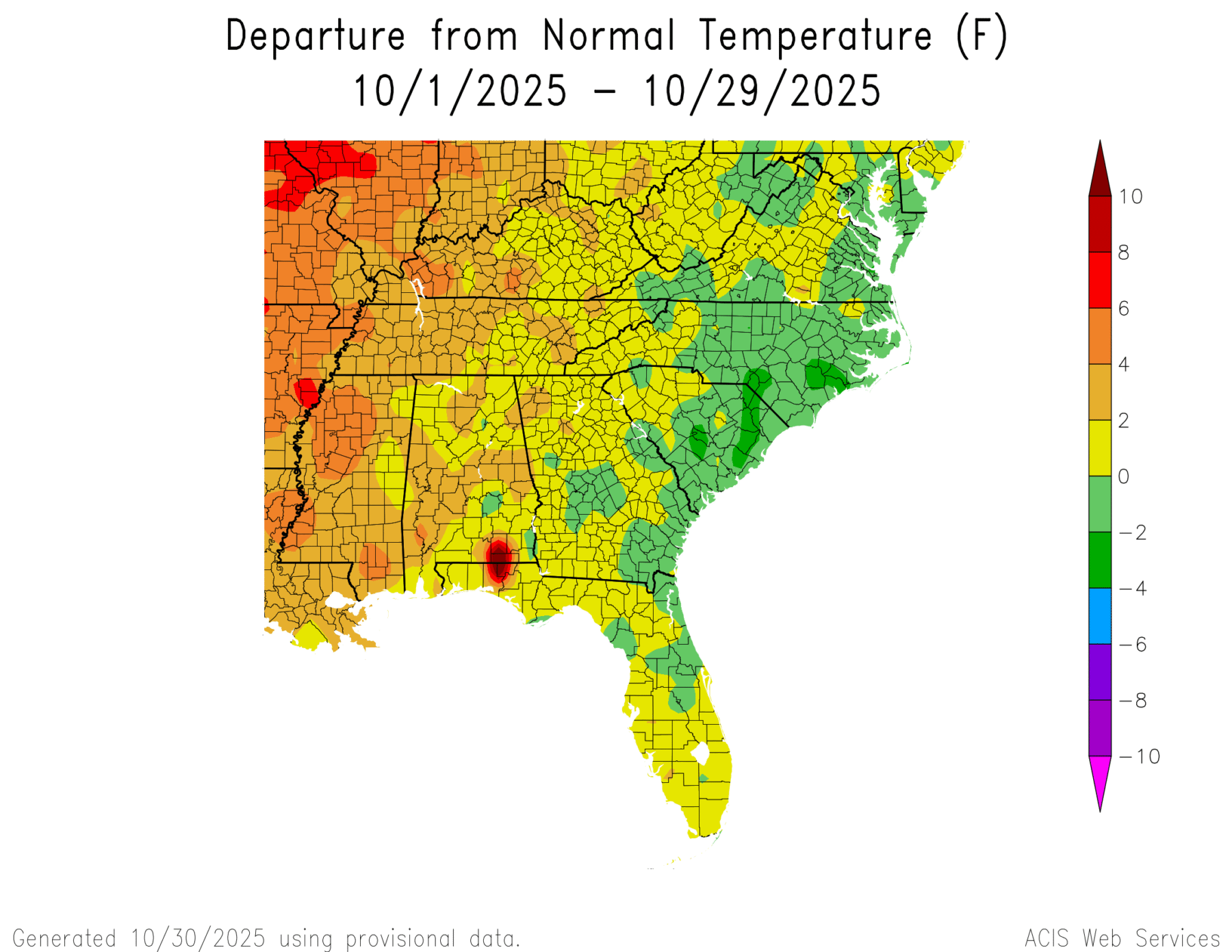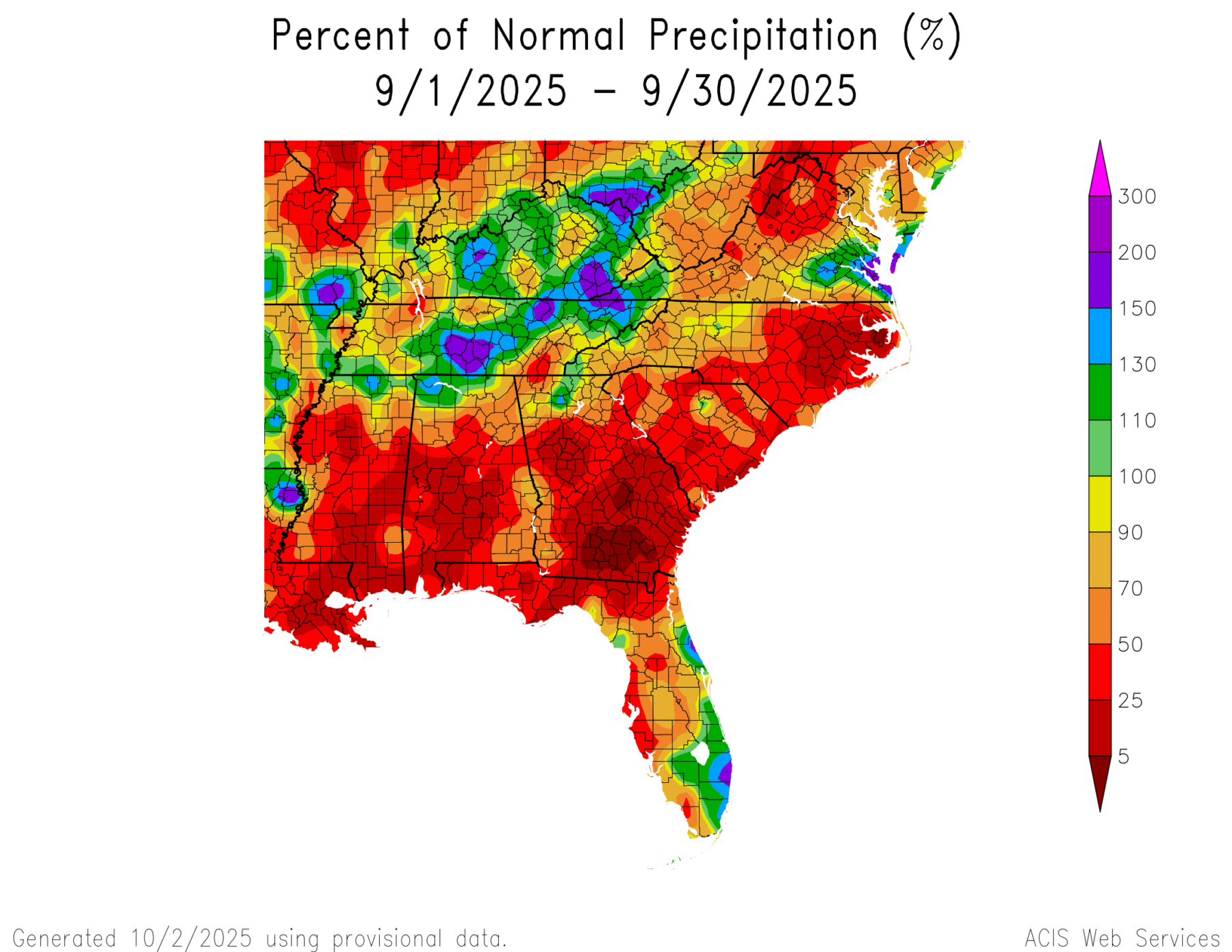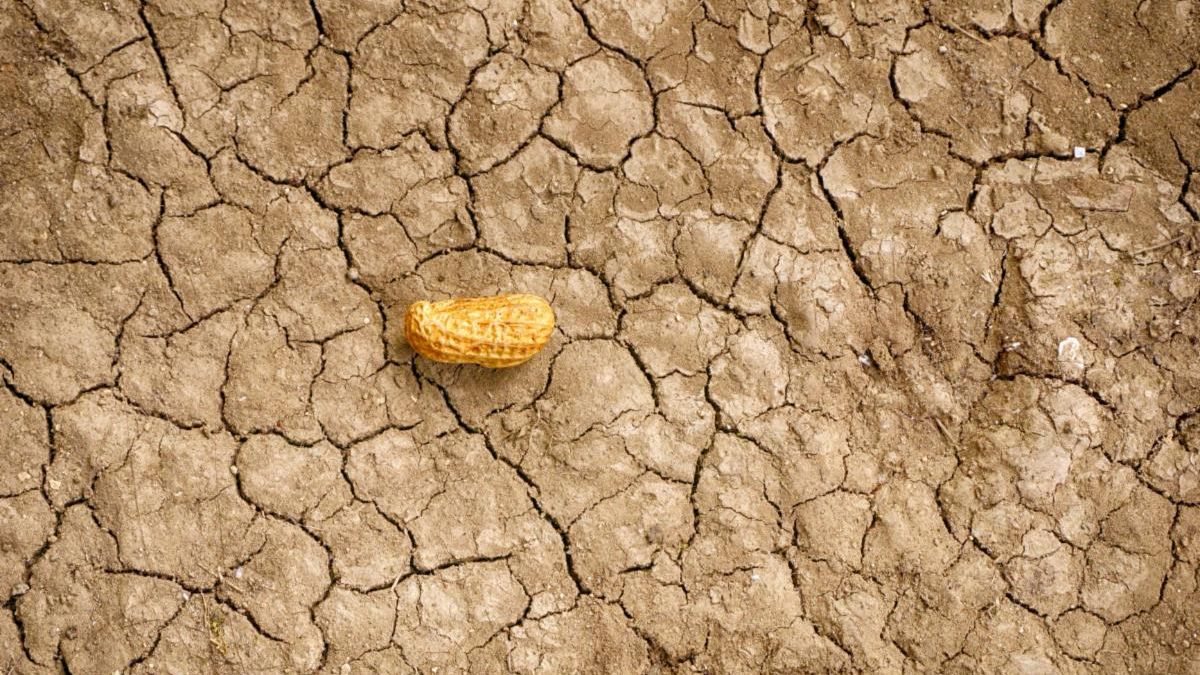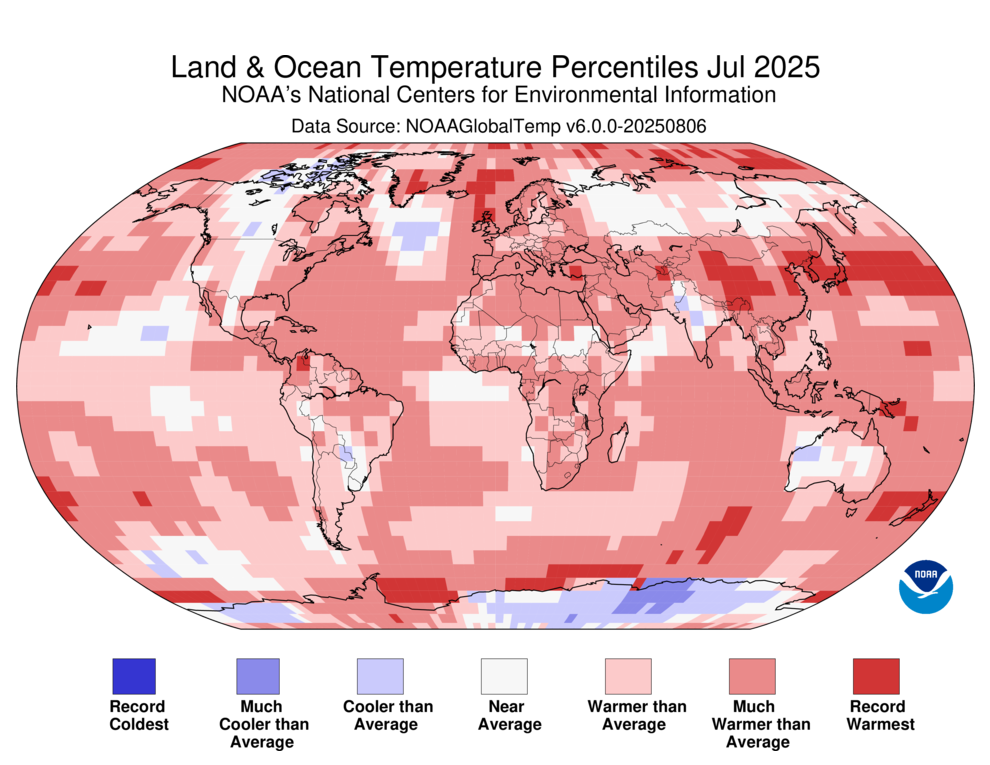Climate summaries
-

Since it is near the end of October, let’s take a look at the monthly climate conditions. The summary maps from the High Plains Regional Climate Center show that temperature varied across the region, with the warmest areas in the west and cooler than normal conditions in the east. Precipitation varied across the region, with…
Posted in: Climate summaries -

So far this October 2025, very little rain has fallen in most of the Southeast. The only real exception is some tropical rain along the Florida East Coast and South Carolina. The rest of the region has been left mostly high and dry with the area of 50% or less than normal rainfall covering a…
Posted in: Climate summaries -

The latest monthly summary shows that while temperatures in the region were mostly cooler than normal, the lack of precipitation was quite noticeable in most of the region. I was surprised by how cool it was in some places, particularly because there was not a lot of rain and associated clouds to keep the temperatures…
Posted in: Climate summaries -

The latest Southeast Monthly Climate Webinar will be held on Tuesday, September 23, 2025, at 10:00 AM EDT/ 9AM CDT online. Join us for the Southeast Climate Monthly Webinar! This webinar series provides the region with information on current and developing climate conditions such as drought, floods, and tropical storms, as well as climatic events like…
-

The preliminary climate summary for August 2025 shows that most of the Southeast was much colder than normal, with mean temperatures ranking in the top five coldest Augusts on record for many stations in the region. The exception was the Florida Peninsula, which was on the other side of a persistent front and experienced one…
Posted in: Climate summaries -

I usually remind people about the monthly webinars on climate in the Southeast that occur on the last Tuesday of the month, but forgot to do it this week. Fortunately, they always make a recording of it, so if you would like to hear it, you can view the video at youtube.com/watch?v=lty2qsWOHoQ&list=PLmhxKH4OH8KJVW6lLEIOZlu-rpkW1ZtLi&index=1. You can register…
-

The latest monthly climate assessment for the world as a whole was released a few days ago from NOAA. It shows that this was the third warmest July since global records began in 1880, behind 2024 and 2023. Snow cover in the Northern Hemisphere was lower than average and so was the sea ice coverage…
Posted in: Climate summaries